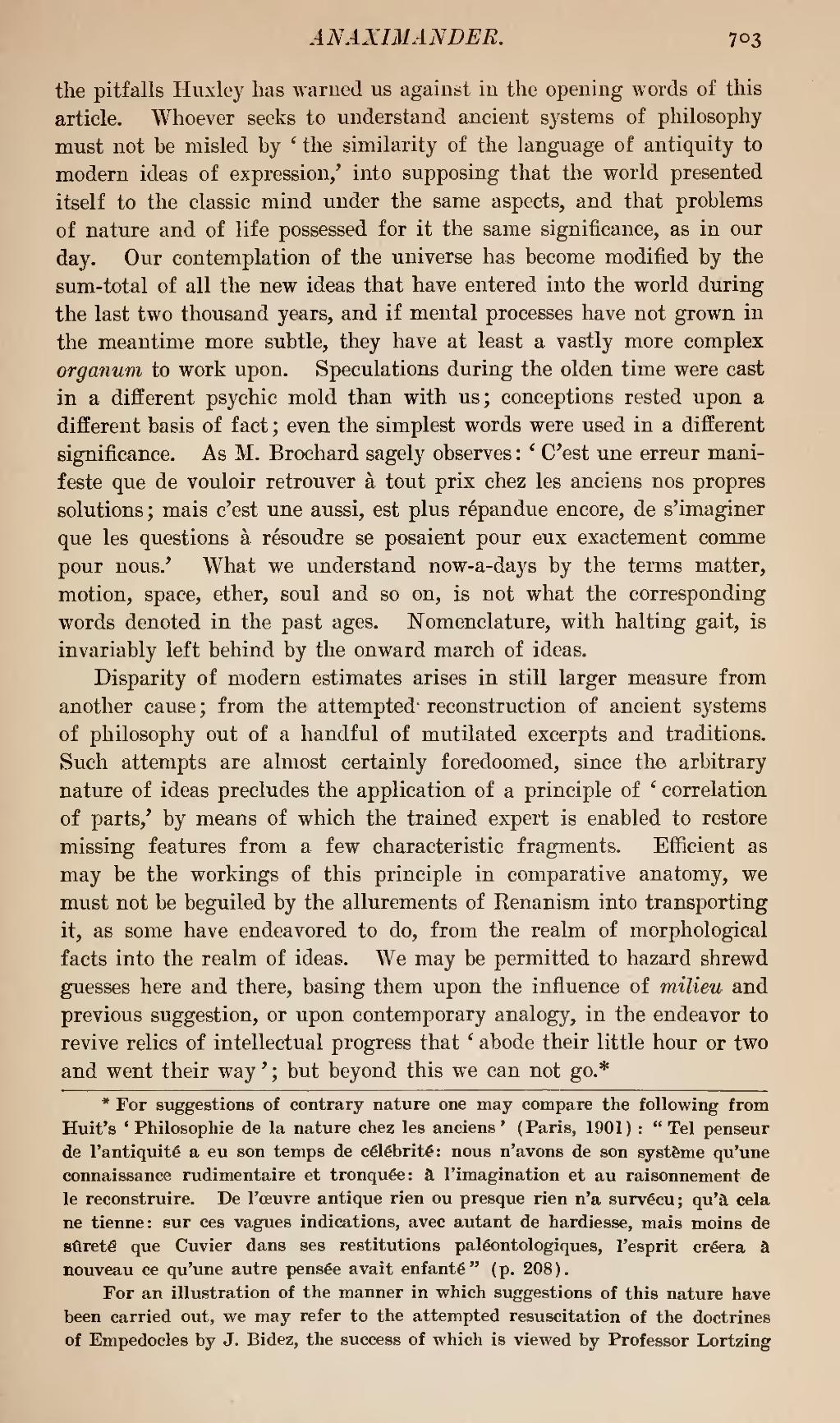the pitfalls Huxley has warned us against in the opening words of this article. Whoever seeks to understand ancient systems of philosophy must not be misled by 'the similarity of the language of antiquity to modern ideas of expression' into supposing that the world presented itself to the classic mind under the same aspects, and that problems of nature and of life possessed for it the same significance, as in our day. Our contemplation of the universe has become modified by the sum-total of all the new ideas that have entered into the world during the last two thousand years, and if mental processes have not grown in the meantime more subtle, they have at least a vastly more complex organum to work upon. Speculations during the olden time were cast in a different psychic mold than with us; conceptions rested upon a different basis of fact; even the simplest words were used in a different significance. As M. Brochard sagely observes: 'C'est une erreur manifesto que de vouloir retrouver à tout prix chez les anciens nos propres solutions; mais c'est une aussi, est plus répandue encore, de's'imaginer que les questions à résoudre se posaient pour eux exactement comme pour nous.' What we understand now-a-days by the terms matter, motion, space, ether, soul and so on, is not what the corresponding words denoted in the past ages. Nomenclature, with halting gait, is invariably left behind by the onward march of ideas.
Disparity of modern estimates arises in still larger measure from another cause; from the attempted* reconstruction of ancient systems of philosophy out of a handful of mutilated excerpts and traditions. Such attempts are almost certainly foredoomed, since the arbitrary nature of ideas precludes the application of a principle of 'correlation of parts,' by means of which the trained expert is enabled to restore missing features from a few characteristic fragments. Efficient as may be the workings of this principle in comparative anatomy, we must not be beguiled by the allurements of Renanism into transporting it, as some have endeavored to do, from the realm of morphological facts into the realm of ideas. We may be permitted to hazard shrewd guesses here and there, basing them upon the influence of milieu and previous suggestion, or upon contemporary analogy, in the endeavor to revive relics of intellectual progress that 'abode their little hour or two and went their way'; but beyond this we can not go.[1]
- ↑ For suggestions of contrary nature one may compare the following from Huit's 'Philosophie de la nature chez les anciens' (Paris, 1901): "Tel penseur de l'antiquité a eu son temps de célébrité: nous n'avons de son système qu'une connaissance rudimentaire et tronquée: à 1'imagination et au raisonnement de le reconstruire. De l'œuvre antique rien ou presque rien n'a survécu; qu'à cela ne tienne: sur ces vagues indications, avec autant de hardiesse, mais moins de'sûreté que Cuvier dans ses restitutions paléontologiques, l'esprit créera a nouveau ce qu'une autre pensée avait enfanté" (p. 208).
For an illustration of the manner in which suggestions of this nature have been carried out, we may refer to the attempted resuscitation of the doctrines of Empedocles by J. Bidez, the success of which is viewed by Professor Lortzing
